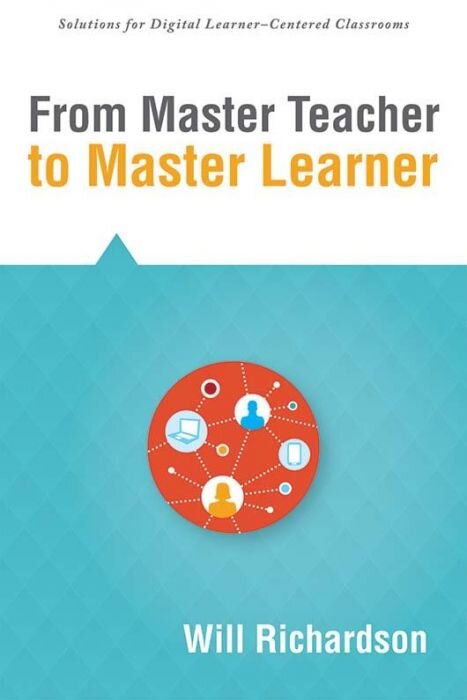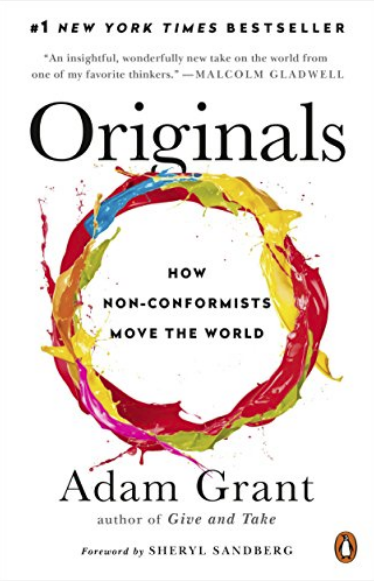Free Content. Subscription Services. Customized Workshops.
To view a distillation click on the book cover or Read More link below the excerpt. Not sure how to use the distillations to improve your practice, learn more about them on our Distillations Explained page.
To find another book, return to the Book Search page.
Rookie Smarts
Wondering what the value of hiring young teachers and administrators might be? Looking to give a shot to someone switching careers? In Rookie Smarts, Liz Wisman will take you through all of the variables of giving those with a fresh perspective the chance to do new work. This book will change the way you hire, promote, and evaluate… three critical components to all leadership positions.
Work Rules!
In Work Rules!, Lazlo Bock systematically relays how Google’s approach to people and work pushes the boundaries of traditional human resource protocols. You will learn why instincts actually impede the hiring process, why focusing on the two tails of a distribution is most valuable, why salary scales are in fact problematic, and why nudges are better than just providing information or making decisions for others.
The Power of Moments
In The Power of Moments, the Heath brothers piece together research, personal anecdotes, history, and psychology to clarify something that affects us all… moments in our lives. They clarify the conditions that increase the chances they are memorable, like creating “peak moments”(eg. college acceptance communication), “leveling up” your pride (e.g. Boy Scout levels), and connections (e.g. team-building exercises) all enhance the moments of our lives
The Art of Gathering
Did you know the greatest potential for memorable moments at an event happens at the beginning, end, and a peak moment in between? In The Art of Gathering, Priya Parker unpacks each component of a gathering from invitation to intentional ending with the perfect combination of research and anecdotes.
Getting to Yes
Have you ever been involved in a negotiation or disagreement and been frustrated by the resolution process or outcome? If so, Fisher, Ury, and Patton have the solution for next time in Getting to Yes. The reader will learn why stating interests rather than positions is key, why where you sit matters, and why acknowledging the worth of the other party are all keys to success.
From Master Teacher to Master Learner
Will Richardson makes it clear from the get-go in From Master Teacher to Master Learner that the model teacher needs to now be a learner first and foremost. He reinforces the idea that our students no longer need teachers who have encyclopedic knowledge, but rather those who can model learning and guide students through what learning should look like in the digital age.
Thanks for the Feedback
In Thanks for the Feedback Douglas Stone and Sheila Heen address an incredibly important, yet rarely written about, concept: how we receive feedback from those around us. The three types of feedback: appreciation, coaching, and evaluation are teased out and concepts such as “wrong spotting” help us to understand how our natural tendency to protect our ego/identity gets in the way of evaluative feedback.
The Medici Effect
Frans Johansson tells stories that illustrate connections across seemingly dissimilar disciplines in order to emphasize his main idea: Intersection is the key to innovation. Most of the book is spent guiding the reader in terms of how to create the Intersection as frequently and efficiently as possible.
Love ‘Em or Lose ‘Em
In Love ‘Em or Lose ‘Em, Beverly Kaye and Sharon Jordan-Evans walk the reader through the process of appreciating, learning from, and retaining top employees. Employers who are more interested in retaining quality rather than retraining quantity are sure to find a handful of nuggets to get them thinking about continuously “re-recruiting” their best people.
The Talent Code
In The Talent Code, Daniel Coyle proposes all hotbeds of talent (e.g., Russian female tennis players from 2005-2007, Dominican players in the Major Leagues, the home that produced the three Brontë sister authors) have commonalities: Deep practice, Ignition, and Master Coaching. In some ways the sociological equivalent to Daniel Pink's Drive, The Talent Code offers solid examples of how myelin is the key to developing talent.












